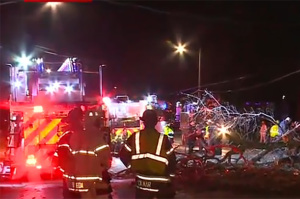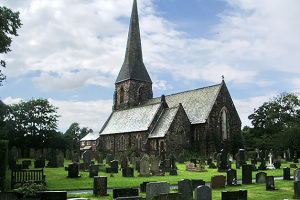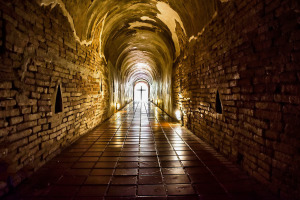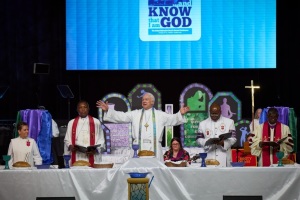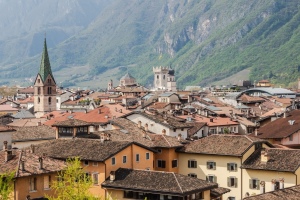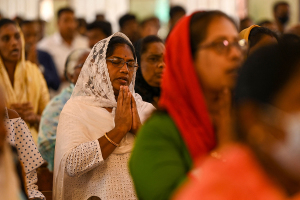Religious Leaders Call for End to Deadly Violence in Syria
Religious leaders have been chiming in on international efforts to cease the deadly violence in Syria, where the regime of President Bashar al-Assad launched its brutal crackdown on pro-democracy protesters eight months ago.
Last week, the United Nations Human Rights Council adopted a resolution which concluded that the Syrian regime committed "gross and systematic violations of human rights" of Syrian civilians, which may amount to the status of crimes against humanity.
A Vatican representative to the U.N., Archbishop Silvano Tomasi, condemned the regime at the time, criticizing the growing violence and calling on political leaders there to enact "real reforms," according to U.S. Caholic.
The archbishop reportedly said the democratic protests arose from legitimate aspirations for "better future of economic well-being, justice, freedom and participation in public life."
"They point to the urgent necessity of real reforms in social, economic and political life," he said. “Such principles must guide leaders while taking account of the aspirations of civil society as well as the instances of the international community."
Tomasi also expressed the church's condolences to the families of victims and its prayers for the recovery of the wounded, the magazine reported.
According to the U.N., more than 4,000 people have been killed in Syria at the hands of security forces, including 300 children.
The American Jewish Commmittee (AJC) has also voiced its support of the U.N. resolution.
"The Human Rights Council again has spoken up for the tormented Syrian people," said AJC Executive Director David Harris. "The UN Security Council should convene soonest to adopt the strongest possible measures against Syria. Each day of delay costs more lives at the hands of President Assad's despotic regime."
Christian denominations constitute 10 percent of the Syrian population, according to data from the U.S. Department of State. The largest Christian denomination is the Greek Orthodox Church, known in the country as the Greek Orthodox Patriarchate of Antioch and All the East. There is also a small Yezidi population, and there are approximately 40 Jews, the department's website claims.
Although the government has been, for the most part, relatively tolerant of religious diversity (Christians in Syria can build places of worship, which is not the case everywhere in the Middle East), some reports claim a crackdown on Christianity began there in recent months.
The Economist reported that Orthodox and Catholic leaders have complained about Protestant churches that reportedly "steal" worshipers from other denominations, which triggered the government's backlash. Several buildings holding Christian services have been closed, some foreigners serving Protestant churches have been told their visas will not be renewed and several church camps were cancelled over the summer, the magazine reported.
Syrian officials say the measures have been taken because the offending churches have been proselytizing, often with the help of foreigners.
But the most intense cases of violent attacks in the country have been directed against protesters who are part of the Arab Spring movement in the Middle East. Sunday, the Arab League threatened new sanctions against Syria unless it allows international observers into the country.
Reports from Syria show that violence is continuing even though leaders recently said they would sign a peace treaty proposed by the Arab League. Just a few days ago, Syria "responded positively" to a peace treaty proposed by the Arab League. The treaty required observers to be allowed into the country to ensure that violence had truly ended in exchange for the lifting of sanctions.
Assad gave an interview to ABC's Barbara Walters Wednesday, in which he denied that he was responsible for his security forces' actions and that anyone in his government had ordered a crackdown on protesters.
Only a day earlier, U.S. Secretary of State Hillary Clinton had met with the Syrian National Council, the leadership of the rebel group Tuesday. Clinton told the Council that a transition to democracy will involve not only disposal of Assad, but also "setting Syria on the path of the rule of law and protecting the universal rights of all citizens, regardless of sect or ethnicity or gender."
















